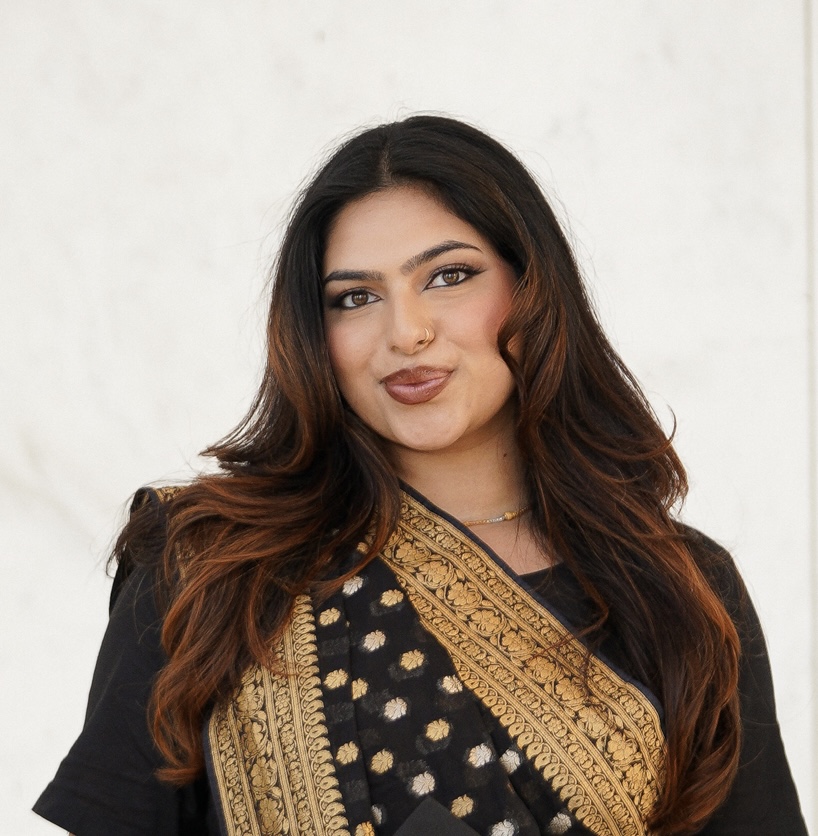
Sarah Khan
| Grant Category: | Fulbright-Nehru Student Research Program |
| Project Title: | Hyper Endogamy among Upper-caste Muslims in Delhi and Uttar Pradesh |
| Field of Study: | Anthropology |
| Home Institution: | Georgetown University, Washington, D.C. |
| Host Institution: | Jamia Millia Islamia, New Delhi, Delhi |
| Grant Start Month: | September 2025 |
| Duration of Grant: | Nine months |
Brief Bio:
Sarah Khan graduated from Georgetown University’s School of Foreign Service, where she majored in culture and politics with a concentration in race, caste, gender, and postcolonial development. Through her coursework, she deepened her understanding of the relationships among labor, capital, and the state with gender, desirability, and social mobility. Her senior thesis explored the construction of Muslim masculinities and femininities through techno-sex economies, wherein she analyzed the racialized nature of libidinal economies and offered a critique of Western liberal feminism. In addition to her academic work, Sarah is deeply passionate about teaching. She has served as an instructor for the Yale Young Global Scholars Program, a volunteer teacher for low-income youth in Washington, DC, through Georgetown University’s Center for Social Justice, and as an ESL instructor for newly resettled refugees in Atlanta through the International Rescue Committee.
As a recipient of the U.S. State Department’s critical language scholarship, Sarah studied the politics and poetics of her ancestral language, Urdu, in Lucknow during the summer of 2024. Most recently, she served as a fellow with the American India Foundation’s Banyan Impact Fellowship, working with the Hyderabad-based NGO Kriti Social Initiatives on the strategic implementation of economic empowerment initiatives for marginalized women.
Sarah’s Fulbright-Nehru project is using caste as an analytical framework to understand the lineage- and labor-based system of social stratification among Indian Muslims. To contextualize, conceptualize, and dismantle Ashraf (upper-caste) supremacy, her work is investigating how hyper endogamy functions as a mechanism through which caste rigidity is articulated, legitimized, and perpetuated. Through ethnographic research in Delhi and Uttar Pradesh, Sarah is exploring how caste operates in and through class, educational background, and spatiality (urban/rural); she is also particularly focusing on the gendered dynamics of marriage and social mobility.